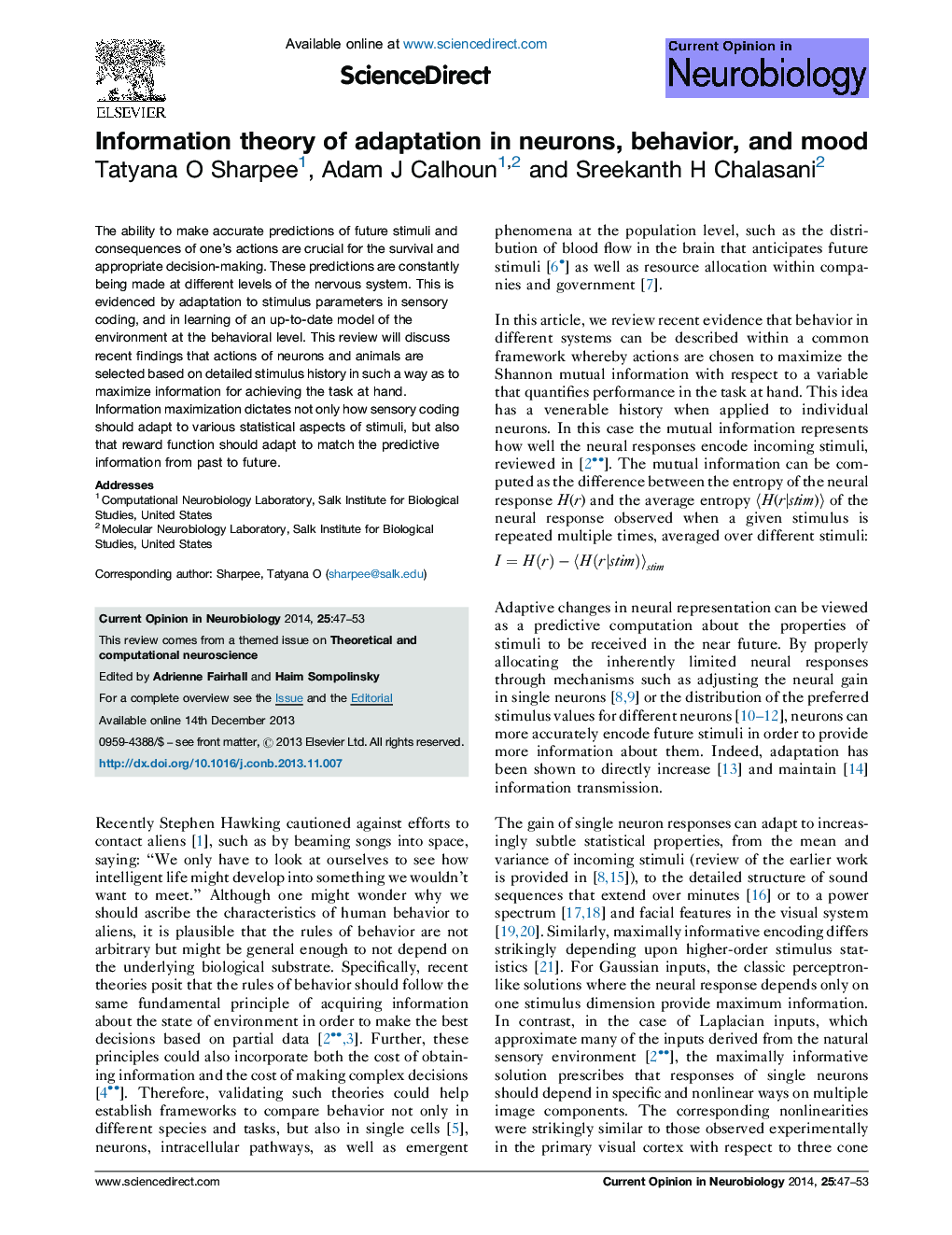| Article ID | Journal | Published Year | Pages | File Type |
|---|---|---|---|---|
| 6266529 | Current Opinion in Neurobiology | 2014 | 7 Pages |
â¢Information maximization describes search strategies in different species.â¢Transition between tasks in the absence of new sensory stimuli explained.â¢Information-theoretic approach to mood and its disorders.â¢Perfect adaptation: reward equals predictive information from past to future.
The ability to make accurate predictions of future stimuli and consequences of one's actions are crucial for the survival and appropriate decision-making. These predictions are constantly being made at different levels of the nervous system. This is evidenced by adaptation to stimulus parameters in sensory coding, and in learning of an up-to-date model of the environment at the behavioral level. This review will discuss recent findings that actions of neurons and animals are selected based on detailed stimulus history in such a way as to maximize information for achieving the task at hand. Information maximization dictates not only how sensory coding should adapt to various statistical aspects of stimuli, but also that reward function should adapt to match the predictive information from past to future.
Graphical abstractDownload high-res image (145KB)Download full-size image
